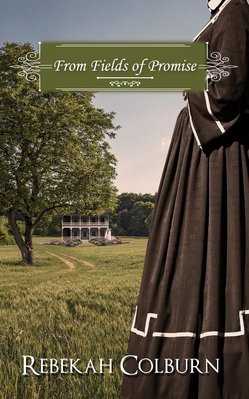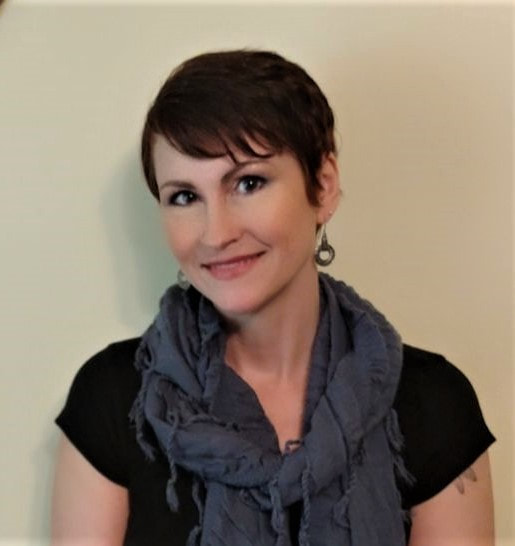July 1865
Oak Hall Farm
Centreville, Maryland
Mariah Wright squinted against the brightness as she scanned the fallow fields. The sun was hot overhead, the humidity stifling. She wore a sunbonnet to protect her fair skin and an apron was tied around the waist of her worn cotton dress. Her bombazine and crepe mourning gown was hanging in the wardrobe in the bedroom along with the weeping veil, reserved for public appearances. She certainly couldn’t wear it working outside and risk ruining it as it would have to see her through at least two more years of mourning.
By this late in the summer the fields should have been waving with tall cornstalks, thick with green tobacco plants and golden with growing wheat. Instead, they lay barren and overrun with weeds and wildflowers. Standing on the first level porch of the white clapboard house, Mariah overlooked the empty fields around her with slumped shoulders.
How on earth was she going to hold everything together and keep her husband’s farm?
When George had enlisted in the Confederate Army in the spring of 1861, they had both known the risk he was taking. At the time, he had been convinced that he must stand against the government in defense of states’ rights. Now it seemed that his sacrifice had been for nothing.
George had survived four years of fighting only to die the week before General Lee surrendered the Army of Northern Virginia which signaled the end of the war. He had left Mariah to carry the burden of managing the farm, caring for his elderly mother, and providing for his younger sister. The weight felt too heavy to carry, yet Mariah had no choice but to square her shoulders and meet the challenges of each new day.
Even if she had possessed the money to purchase seeds for planting, she didn’t have the manpower required to plough the land or harvest the crops. When the slaves had been freed the previous fall most of the Wrights’ Negroes had been swayed by one angry young man to travel north with him to the “promised land.” Only the old, the infirm, and the faithful had remained.
*
That morning as Mariah had grabbed a biscuit and a glass of milk from the kitchen, the elderly Negro woman who had been the Wright family’s cook for many years had noticed her dejected countenance. Ginny had tapped the screen covering the window with a dark, arthritic finger as she asked, “You know what I sees when I look out at them empty fields?”
Mariah had shaken her head in consternation at the frail old woman. “Hunger? Poverty?”
“I sees opportunity for the Almighty to work a miracle.”
Unable to see anything other than defeat in the dismal view beyond the kitchen window, Mariah had merely sighed in reply.
“You don’t believe in miracles, Missus M’riah?” Ginny cocked her head sideways, her lips sagging in toward her toothless gums.
“Not anymore,” Mariah admitted, twisting the wedding band on her finger.
How many times had she beseeched the Almighty to protect her husband and bring him safely home? Not only had George failed to survive his military service, but he had also been deprived the common decency of a Christian burial. The Yankees who killed George had buried him with thousands of other rebel corpses in an unmarked grave near the battlefield where he had died in Petersburg, Virginia. It hadn’t been enough for them to kill her husband, they had also robbed her of the consolation of knowing that his remains lay in peace in the family graveyard where she could honor him with a headstone and flowers. She had not even been granted the simple comfort of having a gravesite to visit.
Ginny patted her shoulder maternally, but said no more as she ambled slowly back to the stove to stoke the fire. Mariah considered that Ginny had seen a miracle in her lifetime with the freedom of her people. Although she had been too feeble to travel with her family on their northern pilgrimage, at least Ginny had the comfort of knowing that her children and grandchildren would never again be considered property, but individuals who could direct their course of their own lives.
For Ginny the war had yielded a blessing, for Mariah all it had done was take what she loved most.
*
Her shoulders ached as she tore at the weeds, grateful for the slight breeze which stirred the humid air. The time Mariah had spent in the flower beds that morning could have been spent on the vegetables, allowing her to retreat indoors that much sooner. However, she knew how much her mother-in-law loved sitting on the verandah, gazing out at the bees buzzing between the blossoms and the butterflies alighting on the satiny petals. There was little else which could bring Evelyn comfort during her time of mourning, and it was a small sacrifice to make when Mariah owed her so much.
Mariah told herself that one day George’s mother would see Oak Hall thrive again, but deep down she feared she was only prolonging the inevitable. Unless God sent a miracle, and soon, they would have no choice but to sell. And, she admitted to herself reluctantly, maintaining the flower garden would improve the appearance of the house when that time came.
Mariah couldn’t say why she kept holding on. After all, hadn’t she told Ginny that she didn’t believe in miracles?


 RSS Feed
RSS Feed